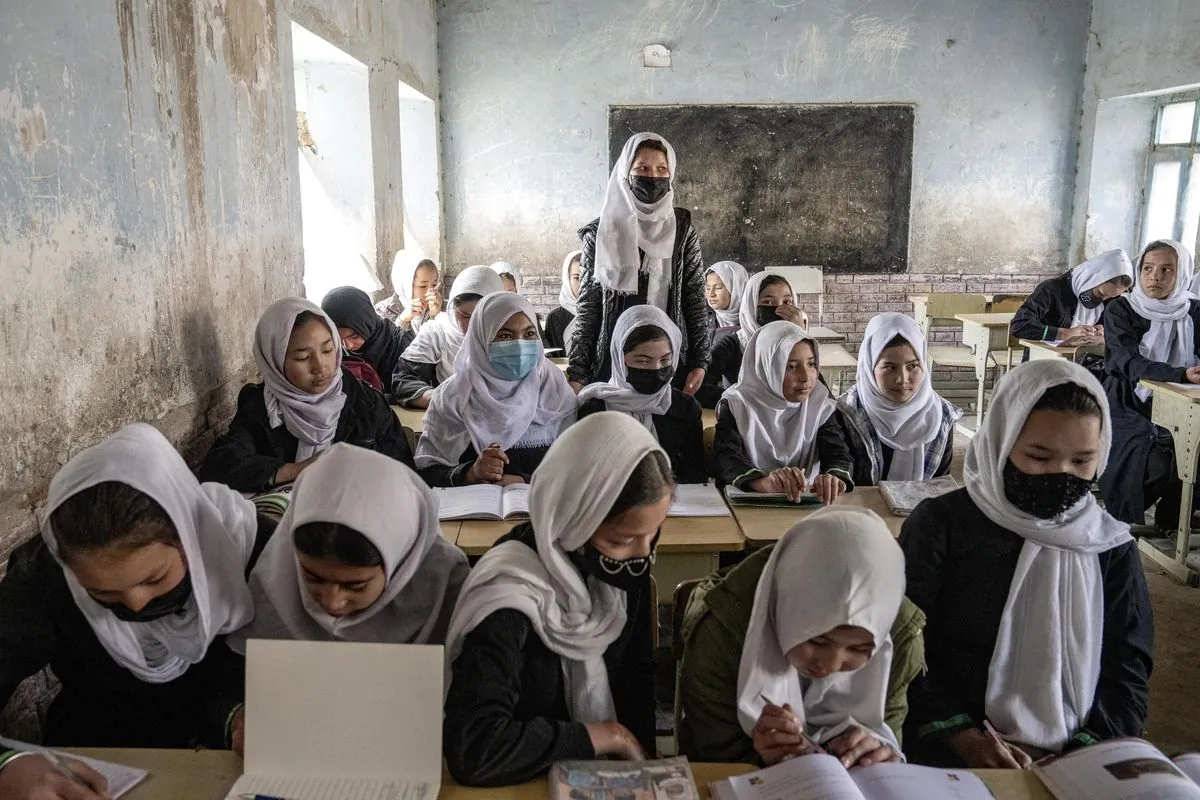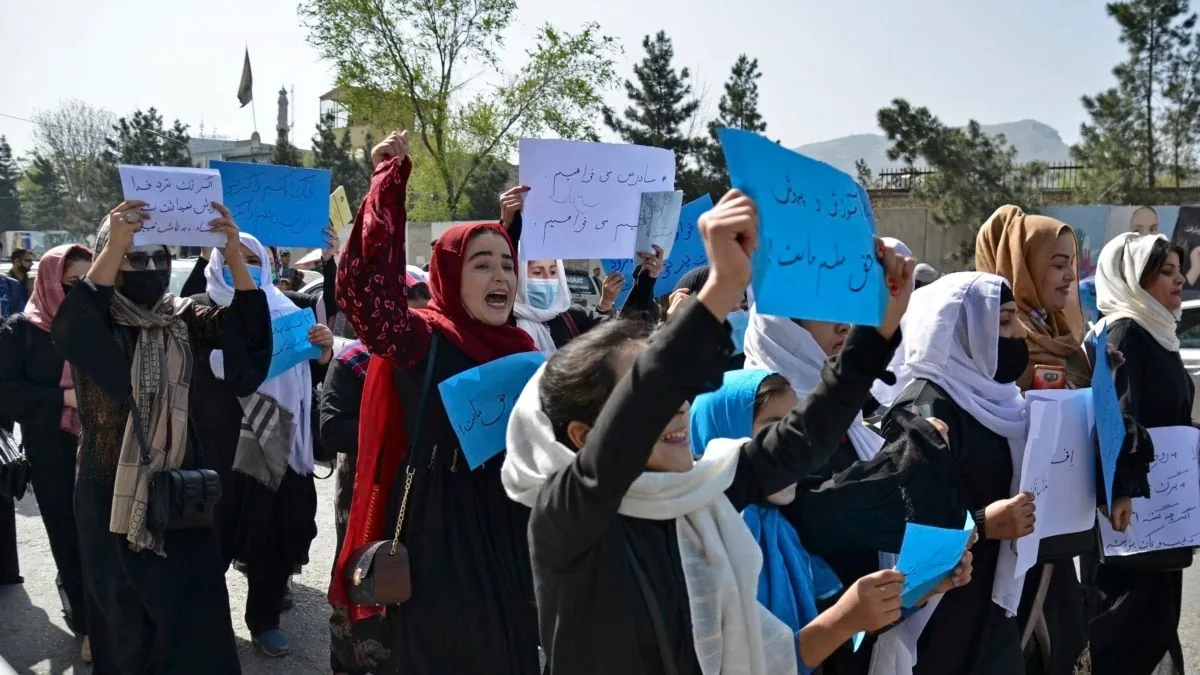UNESCO: Taliban's Education Ban Affects 1.4 Million Afghan Girls
UNESCO reports 1.4 million Afghan girls denied secondary education under Taliban rule. Afghanistan faces educational crisis as enrollment drops, jeopardizing future of an entire generation.

In a recent report, UNESCO has highlighted the severe educational crisis in Afghanistan under Taliban rule. The organization states that approximately 1.4 million Afghan girls have been deliberately denied access to secondary education since the Taliban's return to power in August 2021. This figure represents an increase of 300,000 since April 2023, as more girls reach the age limit of 12 each year.
Afghanistan currently stands as the only nation globally that prohibits female secondary and higher education. The Taliban, citing their interpretation of Islamic law, have barred education for girls beyond the sixth grade. This policy has not been applied to boys, and there are no indications of steps being taken to reopen classrooms and campuses for girls and women.
UNESCO's data reveals a stark reality: nearly 2.5 million girls in Afghanistan, or 80% of school-age girls, are now deprived of their right to education. This includes those who were already out of school before the bans were introduced. The situation marks a significant reversal of the progress made in education over the past two decades.

The impact of these policies extends beyond secondary education. Primary school enrollment has also declined since August 2021, with 1.1 million fewer girls and boys attending school. In 2022, Afghanistan had 5.7 million children in primary school, compared to 6.8 million in 2019. This drop is partly attributed to the Taliban's decision to bar female teachers from teaching boys, as well as the challenging economic environment that may discourage parents from sending their children to school.
UNESCO expresses deep concern about the potential consequences of this massive dropout rate, warning of an increased risk of child labor and early marriage. These issues are particularly pressing in a country where child marriage is already a significant problem, often linked to lack of education.
"The future of an entire generation is now in jeopardy."
It's worth noting that Afghanistan has one of the world's highest illiteracy rates, with an estimated literacy rate of only 43% for adults. The country also has one of the youngest populations globally, with a median age of 18.4 years, making education a critical factor for its future development.
Despite these challenges, the Taliban recently celebrated three years of rule at Bagram Air Base. However, there was no mention of the country's hardships or promises to address the struggling population's needs. This celebration comes at a time when Afghanistan faces not only an education crisis but also economic instability, with millions of Afghans on the brink of hunger and starvation.
The international community continues to express concern over the situation in Afghanistan. The United Nations has declared education a fundamental human right, and the Taliban's policies have led to increased international isolation for the country. As Afghanistan grapples with these issues, the future of its youth, particularly girls, remains uncertain.


































